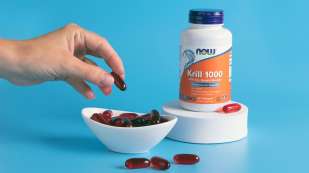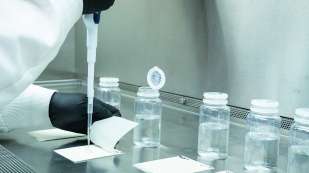Use coupon code CARDAMOM with your purchase of $40 or more for a free†
Cardamom OilSports Nutrition for Skeletal Injuries

Author: Dana Angelo White, MS, RDN, ATC
Skeletal injuries like stress fractures and bone breaks are some of the most common injuries in athletes. Diet plays a huge role in bone health and the prevention and treatment of athletic injuries to bone.
Bone Growth
Bone growth and remodeling happens throughout the early part of the life. Bone growth continues through adolescence, typically ending between ages 16 and 18, while bone density continues to develop into ones 20s. This makes nutrition for bone health tremendously important for younger athletes as they continue to play at a higher level. If nutrition doesn’t match exercise output, often referred to as “low energy availability” (LEA), the risk of damaging bone significantly increases.
Muscle Loss from Immobilization
Skeletal injuries require immobilization and immobilization will cause muscle loss. The good news is this loss can be attenuated with plenty of healthy calories and ample amounts of protein. Many athletes believe they should eat considerably less when they are injured but eating too little risks increased muscle loss as well as a delay in healing. Maintaining a balanced diet of nutrient dense fruits and vegetables, lean plant and animal proteins and whole grains is crucial. Depending on the type and severity of the injury, athletes’ protein needs should be at least 1.6 grams per kilogram body weight per day. In some cases, needs may exceed 2.4 grams per kilogram body weight per day. Supplementing with creatine monohydrate may help maintain existing muscle following immobilization.* A daily dose of 5 grams a day has been found effective in both men and women.
Vitamin D
Inadequate levels of vitamin D are highly prevalent in athletes. A study published in 2022 found that power-focused athletes were even more likely than endurance athletes to suffer from low levels. This deviation is possibly related to the way these athletes also utilize vitamin D for skeletal muscle function as Vitamin D is involved in more than just bone health. Vitamin D is also limited in the food supply, sources include fatty fish, fortified dairy and dairy alternatives and other fortified foods. Egg yolks and cheese also contain small amounts. When it comes to strong and healthy bones, vitamin D plays an important role in promoting the absorption of calcium and low levels of either nutrient can put bone health and bone healing at risk. Ideally, blood levels of vitamin D should be checked prior to or at the time of injury to assess proper supplement dosages. If levels are low, a higher dose supplement may be required temporarily to help correct the deficiency before transitions to a lower, maintenance dose.
Calcium
Many athletes also struggle to meet their needs for calcium since the daily requirement is quite high. A combination of calcium rich foods along with a safe and properly dosed supplement can make hitting those daily targets easier, especially when aiming to prevent and treat injured bones. Be sure to take calcium supplements as directed to optimize absorption and since some forms of calcium can interfere with iron absorption, those also taking iron supplements should take calcium at a different time of day.
Other Nutrients to Consider for Bone Health
Magnesium, Vitamin K and phosphorus are nutrients that also play a role in bone health. They are plentiful in the food supply, with many being found in plant based foods like leafy green vegetables, seeds, beans and avocado as well as peanuts, nuts and nut butters.
Supplements to Consider

Creatine Monohydrate
Use 5 grams a day dissolved in at least 8 fluid oz of liquid of choice following rehab session every day.

Vitamin D-3 & MK-7
Good for bone and cardiovascular health.* Take one capsule daily with a fat-containing meal.

Spicy Turkish Eggs
Cilbir or “Turkish Eggs” is a classic, Mediterranean dish featuring an abundance of protein, calcium and vitamin D – all nutrients crucial for bone health. This version gets an extra punch of flavor and spice from chili crisp and fresh herbs. Traditionally made with poached eggs, use any style you like – runny yolks are encouraged! - Serves: 1

Ingredients
- 1 cup plain Greek yogurt
- Zest of one lemon
- Kosher salt and black pepper
- 2 eggs, cooked a desired
- ¼ cup chopped fresh herbs (such as mint, parsley, thyme or basil)
- 2 teaspoons chili crisp*, or more to taste
- Whole grain bread, for serving
*Chili crisp is a spicy mixture of dried chilies, garlic, spices, and oil. Look for it in the condiment aisle.
Directions
- Place yogurt in a shallow bowl. Add lemon zest and season with a pinch of salt and black pepper. Place eggs on top.
- Top eggs with herbs and drizzle with chili crisp. Serve with bread.
Nutrition Per Serving
Calories: 372 • Total Fat: 21g • Saturated Fat: 5g • Cholesterol: 387mg • Sodium: 442mg • Carbohydrate: 13g • Dietary Fiber: 1g • Protein: 32g
References
-
Wasserfurth P, Palmowski J, Hahn A, Krüger K. Reasons for and Consequences of Low Energy Availability in Female and Male Athletes: Social Environment, Adaptations, and Prevention. Sports Med Open. 2020 Sep 10;6(1):44. doi: 10.1186/s40798-020-00275-6. PMID: 32910256; PMCID: PMC7483688.
-
Smith-Ryan AE, Hirsch KR, Saylor HE, Gould LM, Blue MNM. Nutritional Considerations and Strategies to Facilitate Injury Recovery and Rehabilitation. J Athl Train. 2020 Sep 1;55(9):918-930. doi: 10.4085/1062-6050-550-19. PMID: 32991705; PMCID: PMC7534941.
-
Ip TS, Fu SC, Ong MT, Yung PS. Vitamin D deficiency in athletes: Laboratory, clinical and field integration. Asia Pac J Sports Med Arthrosc Rehabil Technol. 2022 Jul 2;29:22-29. doi: 10.1016/j.asmart.2022.06.001. PMID: 35847194; PMCID: PMC9256943.
-
NIH Fact Sheet on Vitamin D; Accessed April 2024 at https://ods.od.nih.gov/factsheets/VitaminD-Consumer/
*These statements have not been evaluated by the Food and Drug Administration. These products are not intended to diagnose, treat, cure or prevent any disease.











